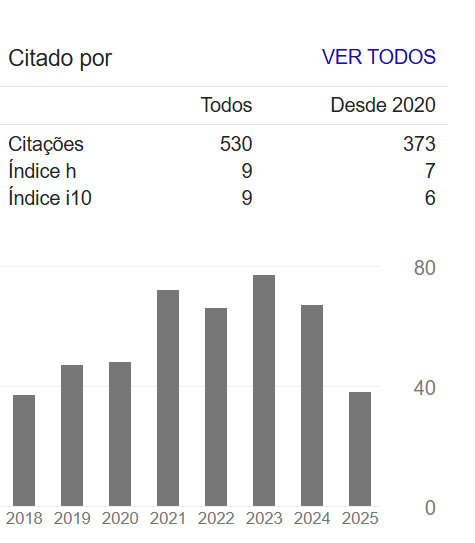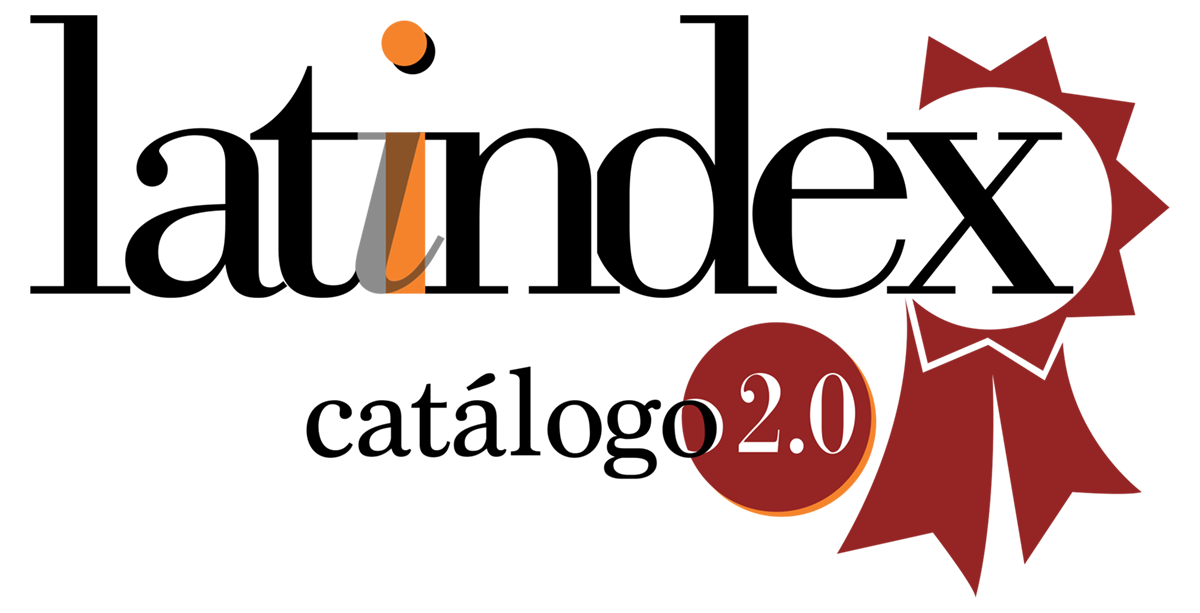Focus and Scope
Albuquerque: journal of Cultural Studies is a biannual open access publication, which aims to disseminate the production in the fields of Humanities and Social Sciences, Languages and Arts, and also the meeting between different areas, in the form of articles, translations, reviews, essays, interviews. The journal is edited by the Postgraduate Program in Cultural Studies (PPGCult) of the Universidade Federal de Mato Grosso do Sul (UFMS/Campus of Aquidauana) and by the members of the Laboratory of Studies in Differences & Languages - LEDLin - UFMS.
The journal also limits the number of publications by researchers and professors from the institution itself. Contributions are accepted in portuguese, english and spanish.
Peer Review Process
All contributions go through the same evaluation and editorial process after the online submission. The time between submission and publication is estimated in sixteen weeks.
Firstly, they are analyzed by the editorial team, which assesses the adequacy to the journal and to the proposal. If the publication conditions are met, the original is sent to two/two ad hoc reviewers for blind peer review. In the blind peer review phase, the referees can recommend acceptance, refusal or modifications, and these must be answered by the author. If there are notes for modifications, the author will be informed and invited to adapt the manuscript. The changes will be evaluated again by the editorial team and, if necessary, by the referees. If there are conflicting recommendations in the first blind peer review, the editorial team will send the manuscript to a third ad hoc reviewer.
Reviews and interviews are evaluated by the editorial team, coordinated by a section editor. If necessary, these contributions can be forwarded to ad hoc reviewers.
We emphasize that each author can only have one original in the evaluation process. If there is an effective publication of your contribution, the period of one year (two numbers) for the start of a new evaluation will be observed.
Manuscript Evaluation Form Model
Publication Frequency
Biannual. January-june, july-december. The issues are always published in the last month of the publication period.
Open Acess Policy
This magazine offers free access to its content, following the principle that making scientific knowledge freely available to the public provides greater worldwide democratization of knowledge. This journal is licensed under a Creative Commons Attribution-NonCommercial-NoDerivatives 4.0 International License.
Funding Sources
This journal has no sources of funding for its maintenance. All work carried out by the editorial team is voluntary and comes from members of the Postgraduate Program in Cultural Studies of the Federal University of Mato Grosso do Sul (PPGCult/UFMS, Brazil) and members of the Laboratory of Studies in Differences and Languages (LEDLin/UFMS, Brazil).
Article Processing
Albuquerque does not charge Article Processing Charges (APCs) to authors at any stage of the editorial process.
Deposit policy in repositories (self-archiving)
Albuquerque: journal of Cultural Studies allows and encourages authors to self-archive their articles in the pos-print and Publishers’ final version in institutional, thematic repositories and/or personal web pages (e.g.: Academia.edu; ResearchGate).
Permission to submit preprints
The journal accepts the submission of preprints already stored on other platforms, as long as they are not simultaneously submitted to another academic journal.
Archival and Preservation
This journal uses Cariniana - Brazilian Network of Digital Preservation Services, which adopts the LOCKSS Program (Stanford University). The journal's archival status can be confirmed on The Keepers.
Originality Check
Similarity checking is performed via the Feedback Studio software on the Turnitin platform to detect similarities between the manuscripts under review and texts previously published in other sources. As soon as the manuscript is received for full submission via OJS, we evaluate it according to our current editorial standards and submit it to the Turnitin anti-plagiarism system, before being assigned to reviewers. By submitting our manuscripts to the Turnitin online tools, we allow other editors to compare submitted manuscripts with those already published or stored in the platform's databases, thus contributing to anti-plagiarism policies.
Journal’s history
In 2008 the foundation of a History journal was created within the scope of the Universidade Federal de Mato Grosso do Sul. Operating since 1968 and federalized a decade later, the institution, since its beginnings, had centers of what would become the graduation courses in History, in the context of the military dictatorship in course since 1964, still structured as Social Studies courses. The first classes of graduates and graduates specifically in full degrees in History are from the early 1980s, already in the context of the restructuring of the area that occurred in the process of the decline of the dictatorial regime and redemocratization of the country. During this long period, journals of pluralistic natures were created on the various campuses of the UFMS in order to publicize the research carried out by its faculty and exchange with other research areas, as well as, from the consolidation of the History area in the institution, specific journals, such as Fronteiras (today, published by the Universidade Federal da Grande Dourados, former Campus of Dourados of the UFMS) and Trilhas da História (published by the Campus of Três Lagoas at UFMS).
Motivated by the possibility of creating a Postgraduate Program in History at that time, which did not happen, a group of professors proposed to create a new History journal, a challenging task when the objective is to convey an interlocutor instrument between institutions and researchers. So, in 2009 the first edition of Albuquerque: Journal of History was published.
The initial conception of the journal, linked to a possible graduate program, with themes and trends of the studies at that time, publishing articles with theoretical framework, research reports produced by the community of History courses, thematic dossiers, commented and analyzed historical documents. The magazine opened its pages to the production of professors and researchers from other national and international institutions. Finally, the name of the magazine was inspired by the figure of captain-general Luiz de Albuquerque de Mello Pereira e Cáceres, who governed the captaincy of Mato Grosso in the 18th century, from 1772 to 1789, consolidating the Portuguese domination in the western region of the colony.
However, with the global historical movements and the changes that History itself necessarily sees as a field of knowledge production and social transformation, in 2015, with changes in the editorial board, it expanded and changed the scope of this publication, resident since then at the Campus of Aquidauana in the UFMS, evidencing the interdisciplinary aspect inherent to the humanities and social sciences.
The dialogue between the different areas of knowledge with a view to understanding increasingly complex societies, a mark of our contemporaneity, was also favored the creation, in 2019, of the Postgraduate Program in Cultural Studies, to which the editors are linked.
In the last four years the journal has been dedicated to the publication of articles that, in addition to the interdisciplinarity, have turned, above all, to the understanding of marginalized, vulnerable, silenced, violated populations or social groups, as well as of the strained relations between hegemonic groups and those that are outside the centers of power. These issues also materialize in the re-signification of the journal's name, which pays tribute, as of this edition, to Camila Albuquerque, a transsexual woman executed in Salvador, Bahia, on March 15th, 2017, found next to garbage bins, swelling the impressive contingent of members of the LGBTI+ population whose murders have been part of Brazilian daily life, alongside with the feminicide, violence and physical elimination of black men, native peoples, the poor and the miserable. In a society as unequal as this, in a world also marked by escalating violence, it remains for us to take a place, and what we have chosen is this: albuquerque: journal of history, that keeps Camila and those who were taken with her to death.
Consolidating the changes it has undergone since 2025, beginning with its thirty-third issue, Albuquerque adopts the subtitle journal of Cultural Studies. We hope that Albuquerque: journal of Cultural Studies will continue to play its role in scientific dissemination within the interdisciplinary field, publishing works that seek to understand the complex global society through its multiple perspectives, as well as the specificities of the historical materiality of social phenomena. We invite everyone to explore Albuquerque: journal of Cultural Studies, and we especially encourage researchers to contribute to its pages.




1.png)










